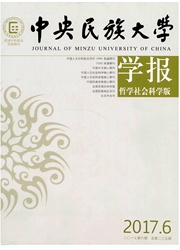

 中文摘要:
中文摘要:
"旅游扶贫"关系到我国当前4000万贫困人口的脱贫及"2020年全面建成小康社会"重大战略目标的实现,而乡村旅游作为实现脱贫减贫的重要路径,厘清其产业发展的动力因子并进行精准施策,具有重要意义。本文从武陵山片区中抽取六个代表性村寨进行实证研究,结果显示:(1)供给系统是乡村旅游产业发展动力的核心引擎,但片区乡村旅游的供给侧改革势在必行,其中,地域品牌形象重建尤为迫切;(2)需求系统驱动力强劲,并已成为乡村旅游产业发展的重要动力保障,但片区当前较为低端的产品供给不能满足市场需求,政府应改变当前扶贫模式,从侧重于"资金扶贫"、"项目扶贫"向"智力扶贫"转变,帮助从业者进行适应游客需求特点的"产品创新";(3)管理系统仍存在诸多问题,其驱动作用有待进一步优化提升。
 英文摘要:
英文摘要:
Pro-poor tourism is related to the realization of the important strategic objective to lift 40 million poor people out of poverty in China and build a moderately well-off society in an all-around way in2020. Rural tourism is an important way to shake off poverty,so it is of significance to clarify the dynamic factors of its industry development and implement accurate policies. This article conducted a field research of six representative villages from Wuling Mountain Area with the following results: 1) since the supply system is the core engine of the development of rural tourism industry,the reform of the supple front,especially the reconstruction of regional brand image is imperative; 2) the driving force of the demand system is strong,and it is a crucial guarantee to the development motivation of rural tourism industry,however,the supply of relatively low-end products cannot meet the demand of the market,therefore,the local government should change the existing mode of poverty alleviation,and shift the focus from " poverty alleviation by funds" and "poverty alleviation by projects " to " intellectual poverty alleviation " so as to help practitioners develop innovative products to meet the needs of tourists; and 3) there are still many problems in the management system,and its driving force needs to be further optimized and improved.
 同期刊论文项目
同期刊论文项目
 同项目期刊论文
同项目期刊论文
 期刊信息
期刊信息
